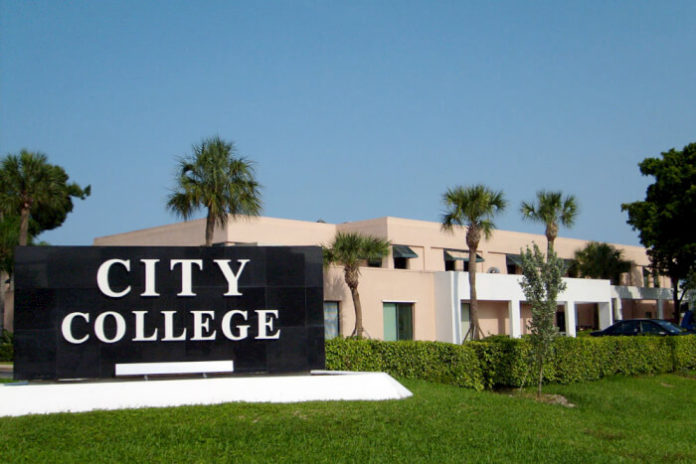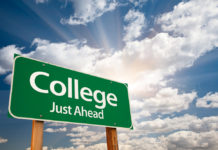How do we ‘learn’? This isn’t as easy as it sounds. How many times have you ‘learned’ something, only to find later that it was completely wrong? This old dude has done so innumerable times. How does a supposition become something we can rely upon: ‘understanding’? What happens if our old methods of learning fail? Let’s dig.
It wasn’t so long ago in human history that ‘learning’ took place quite painfully. Pre-civilization, ‘learning’ was nothing more than survival—survival against nature, survival against wild animals, survival against bigger, stronger humans. Hunger and weather are wonderful teachers! If you did things that temporarily solved hunger and sheltered you from weather (and predatory humans), you ‘learned’ to do those behaviors over and over again to solve those same problems when they inevitably occurred again. Over time, you ‘learned’ some very basic things: fire is always hot, water is always wet, eating some things hurt you, eating some things kept you alive, shelter from poor weather makes life easier, and so on. With the advent of civilizations and cultures, ‘learning’ took on another dimension. People we had confidence in, usually elders or priests, passed down information to younger folks—even if many of the things assumed correct were not so. We later entrusted ‘teachers’—those who learned stuff via studying attempted to pass their knowledge on to the next group of youngsters. Note that parents and older siblings ALWAYS had and have a role as informal ‘teachers’—a small step beyond ‘trial and error’. Parents especially had and have a role to pass down family traditions, customs, religions, and details they use to ‘tailor’ their children as they saw fit. Appropriately so, as parents generally know their children better than anyone, and know their strengths and weaknesses.
As our combined knowledge increased, along with better methods of communicating that knowledge, our horizons to ‘learn’ expanded greatly. We can point to specific points in human history where those expansions were exponential, mostly due to new technology. The printing press, the telegraph, the telephone, the television, the home computer, the Internet, and many more, allowed us to share information faster, and the commensurate rise in literacy cannot be understated. What was unheard of in the 1600s became commonplace in the 1900s: literacy and ‘learning’ became commonplace and expected—an amazing feat in such a short time frame!
The public school system as we know it is not really that old, even if it seems that it has always been around. Prior to the 1900s, schoolhouses were considerably different than today’s institutions. Multiple ages were frequently taught at the same time, likely by the same ‘teacher’. Students frequently advanced based upon their capacity to ‘learn’—breaking classes up by age wouldn’t happen until much later. The material taught then vs now is quite different, too. Greek, Latin, Ethics, Philosophy, Civics, Government, and many other subjects, were common subjects, taught to many, if not all, of the students. Only recently have those subjects been deemed unnecessary or wastes of time. Arithmetic, English, American History, Literature, Geography, and so much more, was taught quite diligently: you simply were EXPECTED to master those subjects.
Fast forward to current day. The structure of ‘learning’ hasn’t changed much since the 1950s, even though the technology has advanced at an incredible pace. It is now highly uncommon for elementary age students to NOT have access to computers and the Internet! Functions of libraries have nearly been obsoleted entirely by Internet search engines! I do not know the average age of when children become owners of smart cell phones, but it must be in single digits. Note that the role of ‘teachers’ has changed somewhat as society has changed. The preponderance of single-parent homes has pushed ‘teachers’ into nearly ‘babysitter’ status. Things that were formerly taught by parents slowly moved over to be taught by ‘teachers’. For most, this dynamic was entirely unintentional—the parents simply didn’t have the time or energy to multitask to the necessary level—and the students spent more time at school than at home, so the role change was nearly inevitable. In many poorer households, the parents’ lack of education also became problematic, as the students’ knowledge base overtook that of their parents. Parents were capable of enforcing ‘study and homework’ time, but were less able to assist the students with the details of the material being taught. Unfortunately, the gap of parents’ knowledge of what is being taught is increasing over time—including specific subject matter.
Adding to the mix of ‘public school’ teaching are the prevailing attitudes and abilities of the entire teaching establishment. Not to paint with too broad a brush, but the teaching profession tends to lean to the progressive side of things, and have for decades. This naturally tends toward teaching progressive views of subjects, proven or otherwise. The importance here is that students get that view alone to ‘learn’. We are in at least the second full generation of students that have been taught things dramatically different than old-school thought. History, especially US History, views are almost 180 degrees from what was formerly taught. Up until the 1980s, the US was framed as the ‘good guy’ in most instances, with History taught in that view. Along with omitting many of the subjects mentioned above (Greek, Latin, Ethics, Philosophy, Civics, Government, etc.), teachers are now adding subjects entirely foreign to their parents: gender studies, racial studies, and the like—many times, without the knowledge of the parents at all. The second part of this dynamic is the ability of the teachers involved. Many teachers are knowledgeable about specific areas, but are pushed into teaching other areas by staffing necessities—well outside of their expertise. Through no fault of their own, they are likely more ‘by the book’ teaching, relying on whatever text is used for that class.
To circle back to the opening paragraph: how do we know that our students are ‘learning’ real, proven information? If Civics, Government, and US History are either not taught, or taught with an anti-American view, how can we expect this generation of students to appreciate or defend the US at all, or even know the differences between the US and other countries? Especially if they are not taught the differences in governmental systems, or how the US came to be in the first place? If students are not taught multiple sides of Economic systems (Capitalism vs Socialism vs Communism), how can they be expected to discern the good and bad of each? At what point does their accumulated knowledge become ‘understanding’ of things that are not factual, but just the opinions of their teachers? How much must Conservative or religious parents teach things at home to overcome what is taught at school?
This is no better illustrated than the current crisis of teachers advising their students that their ‘gender identity’ is fluid, keeping such discussions secret from their parents entirely. Some are advising and facilitating students to have ‘gender affirming’ procedures—from puberty blockers to hormone therapy to actual destructive surgery! At what point did obtaining a teaching degree or certificate impart knowledge and expertise in biology, anatomy, psychology, and psychiatry, enough to advise students of such things? And when did parents give the teachers the right to overturn or trump the views of the parents? This is an ongoing struggle, both in schools and in courts. Many parents had no idea what their children were being taught until the COVID-19 response of ‘remote learning’, usually via Internet, exposed the subject matter–and many were less than happy with the content. It is no surprise that the number of students being home-schooled, rather than attend public school, is rising dramatically.
Suffice it to say: what is being ‘taught’ is dramatically different than in the past. What students now ‘know’ is very subjective, if not entirely incorrect. If parents want their children to be taught traditional subjects and views, they must overcome the ‘public school’ environment, if not exit it completely. Those students of single parent households (or disinterested parents) will be left to the steering of the ‘new age’ methods and subjects being ‘taught’. I can’t think of a worse scenario for our country and society.
Thank you for taking the time to read my article! Feel free to add comments (good or bad) in the box below. In addition, there is a link at the bottom of the article to view other items I’ve written at Global Liberty Media. Enjoy!

























